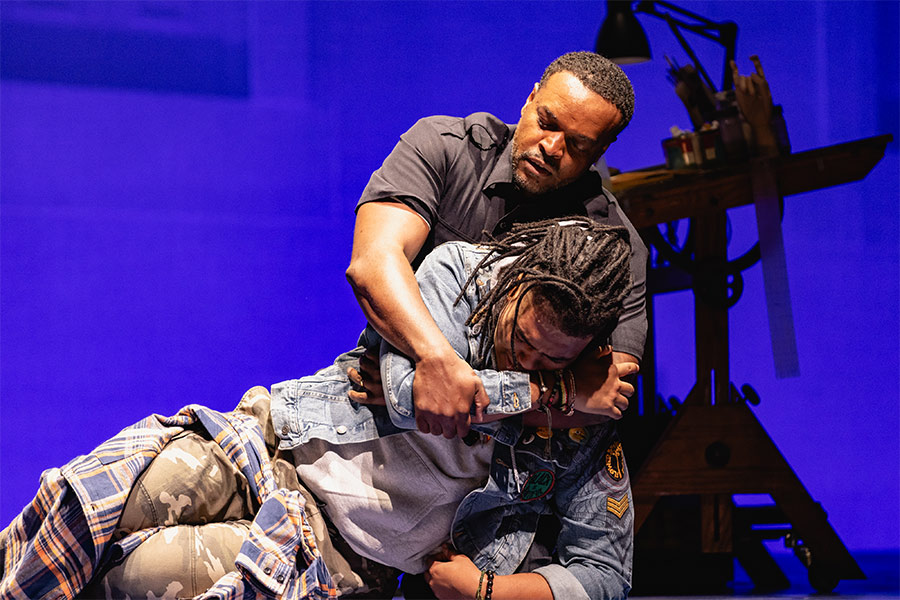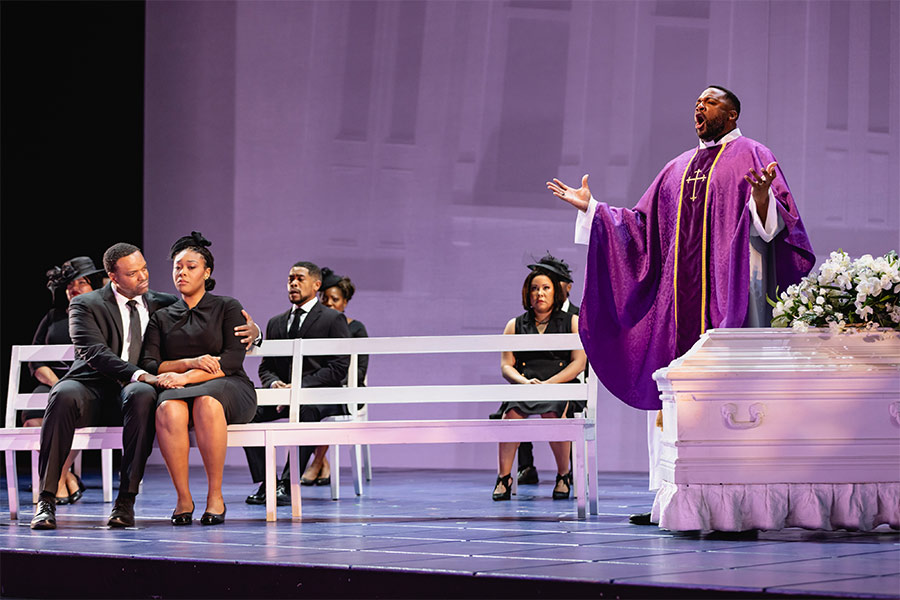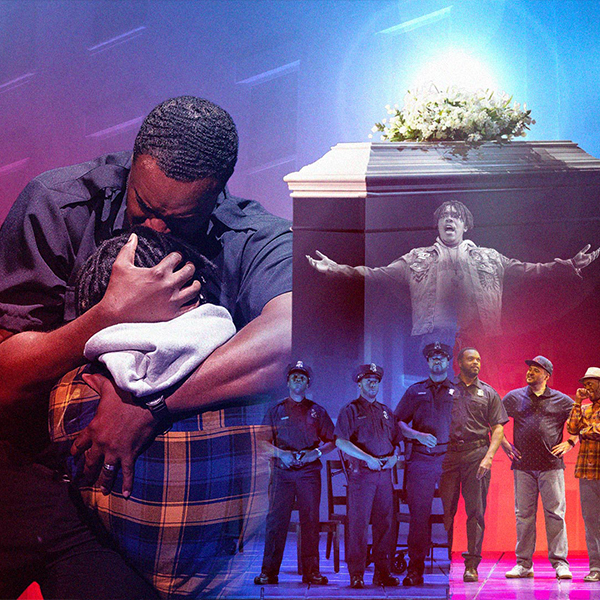November 19, 2024
Composer Conversation: Jeanine Tesori on Blue
The Tony-Award winning composer recounts the legacy of her grandfather, her approach to composing, and collaborating with Blue librettist Tazewell Thompson.
Can you talk about how you became a composer?
It's such an interesting and mysterious journey for me. I do think that in my case it's my family legacy. My grandfather was a composer. I never met him — he died when my mother was five. But I have his charts, baton, a poster, and music stand. The stand is right by my piano. As I age, I feel an incredible connection to him. He led a band in the Midwest before settling in Wilkes-Barre, Pennsylvania. I feel the energy and connection, because sometimes I don't know where the music comes from.
My ear training and family are important aspects of my background. I was taught to keep my head down, do the work, and bring people along with you if you rise.
Do you approach composing for film and stage differently?
For me, the approach is the same and the expectation is different, depending on the medium — be it theater, film, or opera. The text always leads. What is the text saying? What is the text not saying? Where does it need to breathe? Who is this character? What's in their pockets? What are their weapons? What are their secrets? What do these characters want? What's standing in their way? Do they emerge in victory or tragedy? That has always been my approach. The music I write for opera is very theatrical. It has a different kind of pacing because I come from the theater tradition. Right now, I believe opera is in a beautiful golden age.
A golden age! That requires keeping track of ideas. Do you use a journal or notebooks?
I do. But I'm a very visual person, I always have been. So I carry sketch pads everywhere. I'm always jotting and sketching. Strangely enough, it helps me work things out in my mind musically. I have so many notepads. They are all over the place and very disorganized.

The Father (Kenneth Kellogg) embraces his Son (Travon D. Walker) in Blue.
Are these visual representations of your compositions?
No, it's a form of meditation. To help me visualize what I'm composing, I chart the characters and plots with Post-it Notes on display boards. That way I know what's happening at all points.
Are there signposts in Blue? Passages that the audience should listen for?
There are several. One comes near the beginning of Act II — the scene between The Father and The Reverend. The Father gives his police badge to The Reverend, singing "I lay my burden down. I ain't going to study war no more." I really took that passage and ran with it. It hit me in such a way that I wrote a choral piece based on that theme.
The other scene that I would love people to listen for is in the second scene of the Act I. Here The Nurse instructs The Father on the correct way to hold his new baby. This theme is reprised late in the opera when The Mother asks God to care for the son in the same way, to hold him with the same care and instructions that the Nurse gave to the father. Here, it is the Heavenly Father.
Traditionally in opera, the composer has top billing over the librettist. In this case, you and Tazewell Thompson collaborated very closely. How was the process on this project?
This is Tazewell's story. When I asked him to write this with me, I knew that it would delve into parts of his life that were going to be traumatic and painful. This story is rightfully his. And I think librettists are ignored way too often. For example, very few people know Mozart's librettists. Real true fans will know, but not many more. I work with playwrights. I'm part of a theater tradition where you own your work, and the word is the queen.
As a composer, I'm aware of the fact that if I don't have text, I have nothing to say. For me, it's incredibly important, especially with someone like Tazewell — a man of color — for people to understand that I'm visiting in this landscape as a white artist. I'm a visitor in those parts. The poetry in Blue comes from Tazewell's heart.

The Reverand (Norman Garrett) leads his congregation in prayer during the funeral of the Son in Blue.
He mentioned that you suggested changing The Father's role from musician to police officer. Why?
It occurred to me that there were a lot of stories about musicians of color, often ending in tragedy. I wasn't interested in writing another one. When I suggested that change, it was hard for Tazewell. His father was a jazz musician. During our conversations, I had to consider what I was asking of Tazewell. His response was immediately "No." Then he thought about it. The next day he explained that his reply was too quick, and that he needed to confront his feelings to write that story.
What is your hope for the audiences experiencing Blue?
The goal for the person watching is to travel in the shoes of the characters they see on stage — to vest so heavily in the character's victories and tragedies that they experience them as their own. That is what causes the audience to cry and laugh. The character's story is the audience's story. I think that my hope is that the opera is impactful to the point that a person in the audience will never forget what they just saw.
Adapted from an article for Seattle Opera by Glenn Hare.

